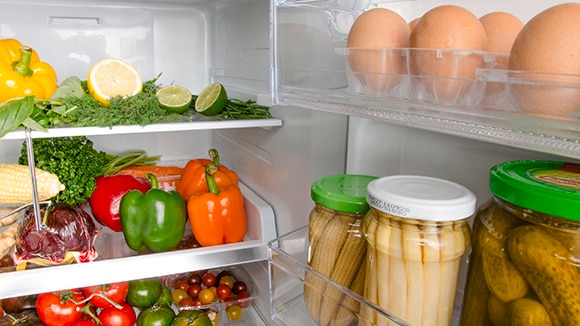Do you end up throwing away more than you actually eat? Proper storage reduces the risk of food poisoning, wastage and preserves the quality of your food. Here are some basic guidelines for storing food in the refrigerator ensuring that your food is always safe to eat.
Meat - They should be stored in the freezer in clean, sealed containers or zip-lock bags.
- Keep raw meat, poultry, fish and seafood away from other foods to avoid contamination.
- When thawing meat or seafood in the refrigerator (chiller), meat should be placed in a container/dish to prevent blood/juices from dripping onto other food items.
- Never re-freeze raw meat or fish that has been defrosted.
Vegetables and fruits – store in bags with punctured holes to enable air flow.
- Trim leafy ends of root vegetables like carrots and beets to retain its crunchy freshness. If not the vegetable will become withered and spongy.
- Don't wash produce before refrigerating it as the dampness may make them rot faster.
- Do not overcrowd the vegetable crisper. The closer the veggies are, the faster they will start to rot.
- Leafy greens should be washed and paper towel dried before storing to drain excess moisture.
- Herbs should be covered with a slightly damp paper towel and stored in a ziplock bag or plastic wrap and kept in fridge.
- Do not store fruits and vegetables together. Some fruits give off high levels of ethylene (the ripening agent) and can prematurely ripen/ spoil adjacent vegetables.
Other Tips for Refrigerator Safety:
- Do not open the fridge frequently as the warm/humid air flowing in will affect the refrigerator temperature and cause spoilage. For the same reason, food needs to be cooled down before you store in the fridge as well.
- Don't overcrowd the fridge as cool air needs to circulate to keep food at a safe temperature.
- Never put open cans in the fridge, as the metal may transfer to the can's contents.

